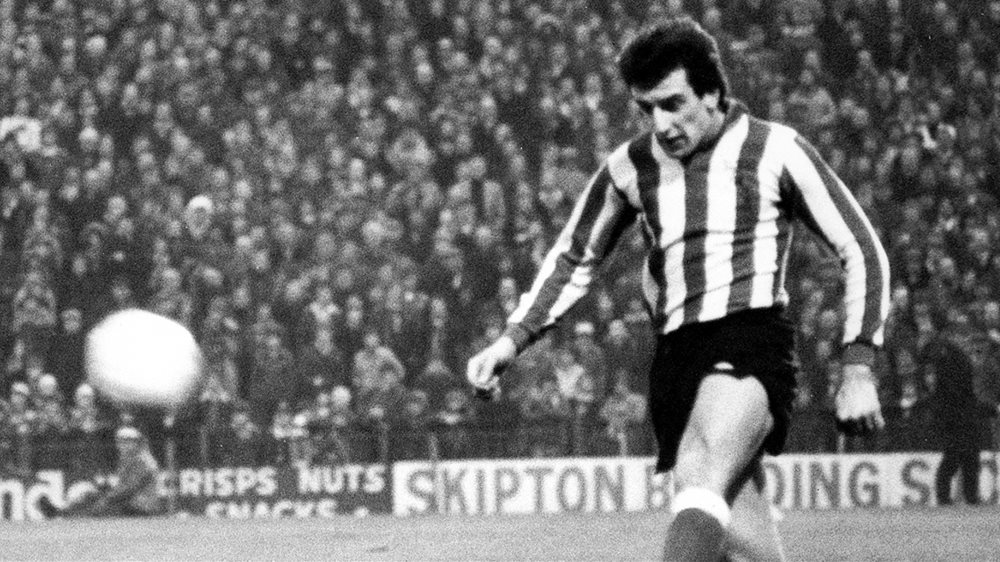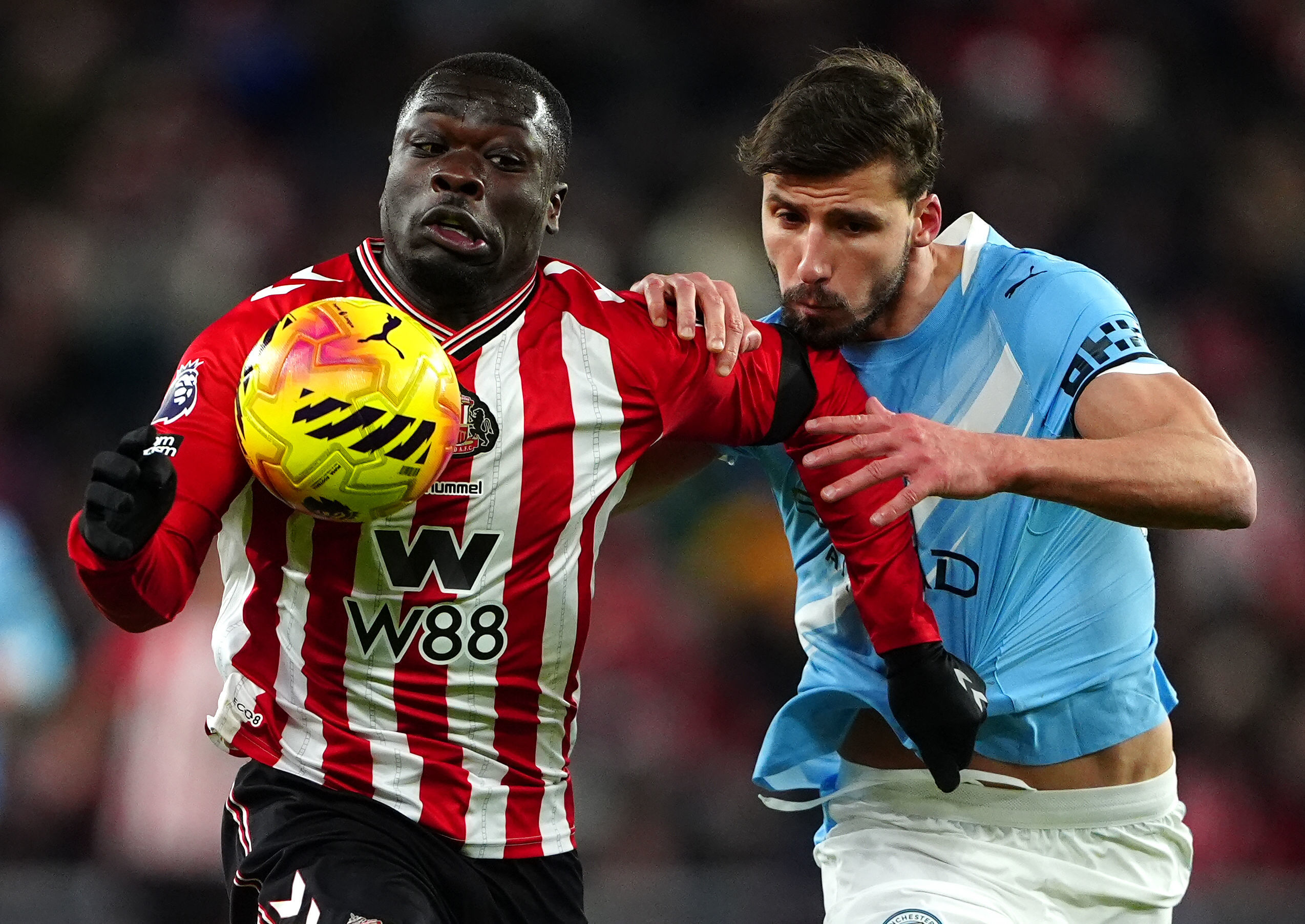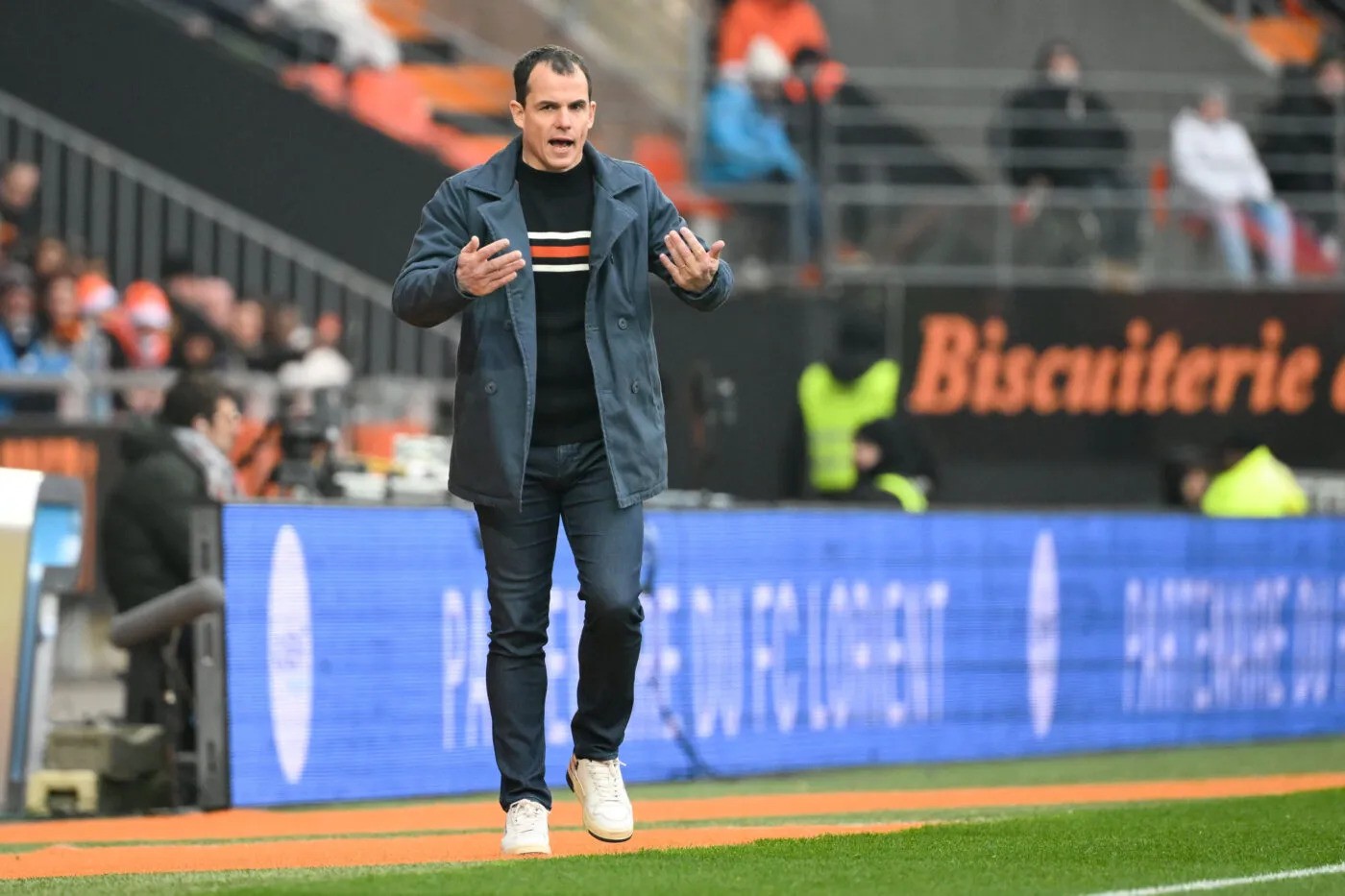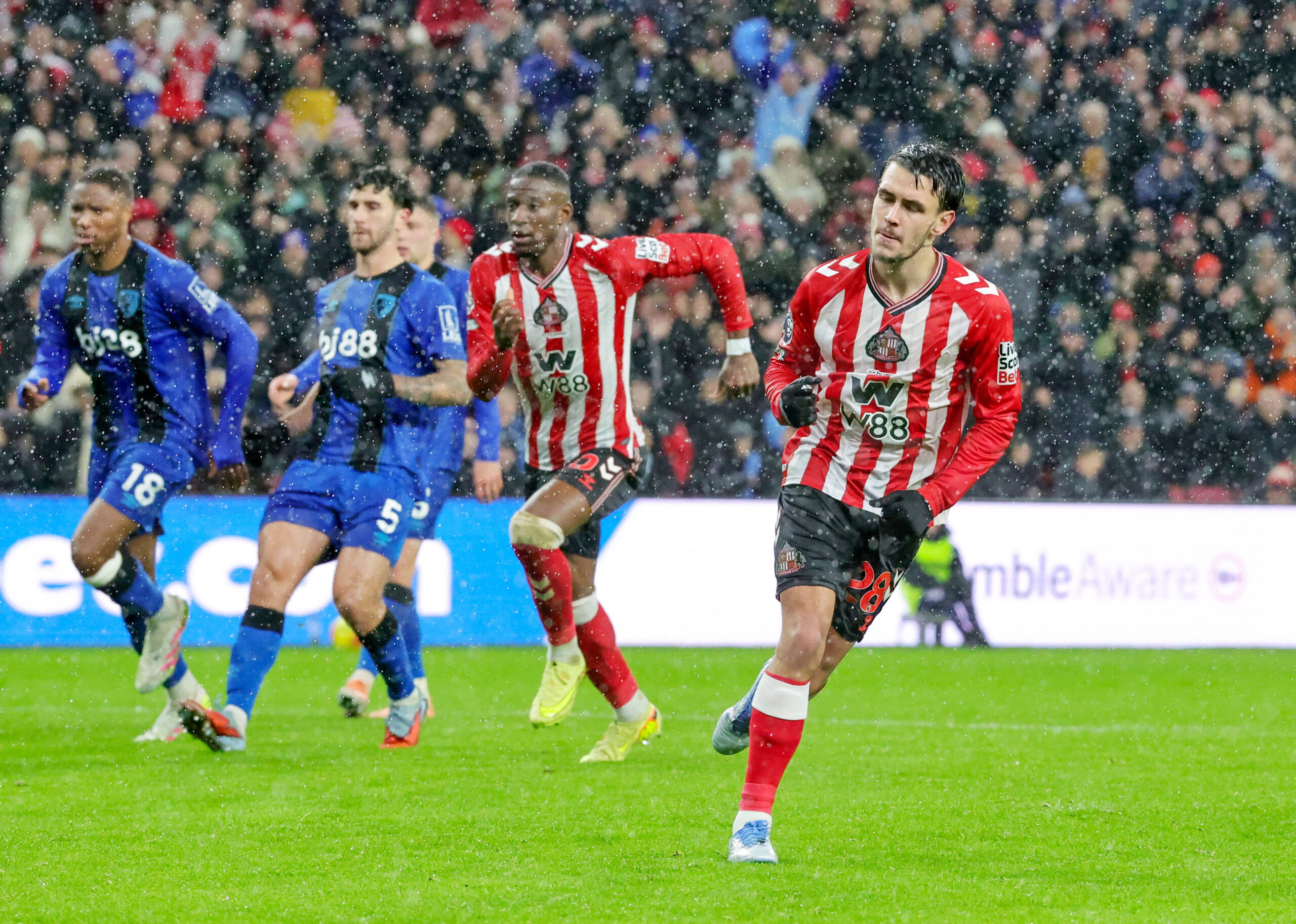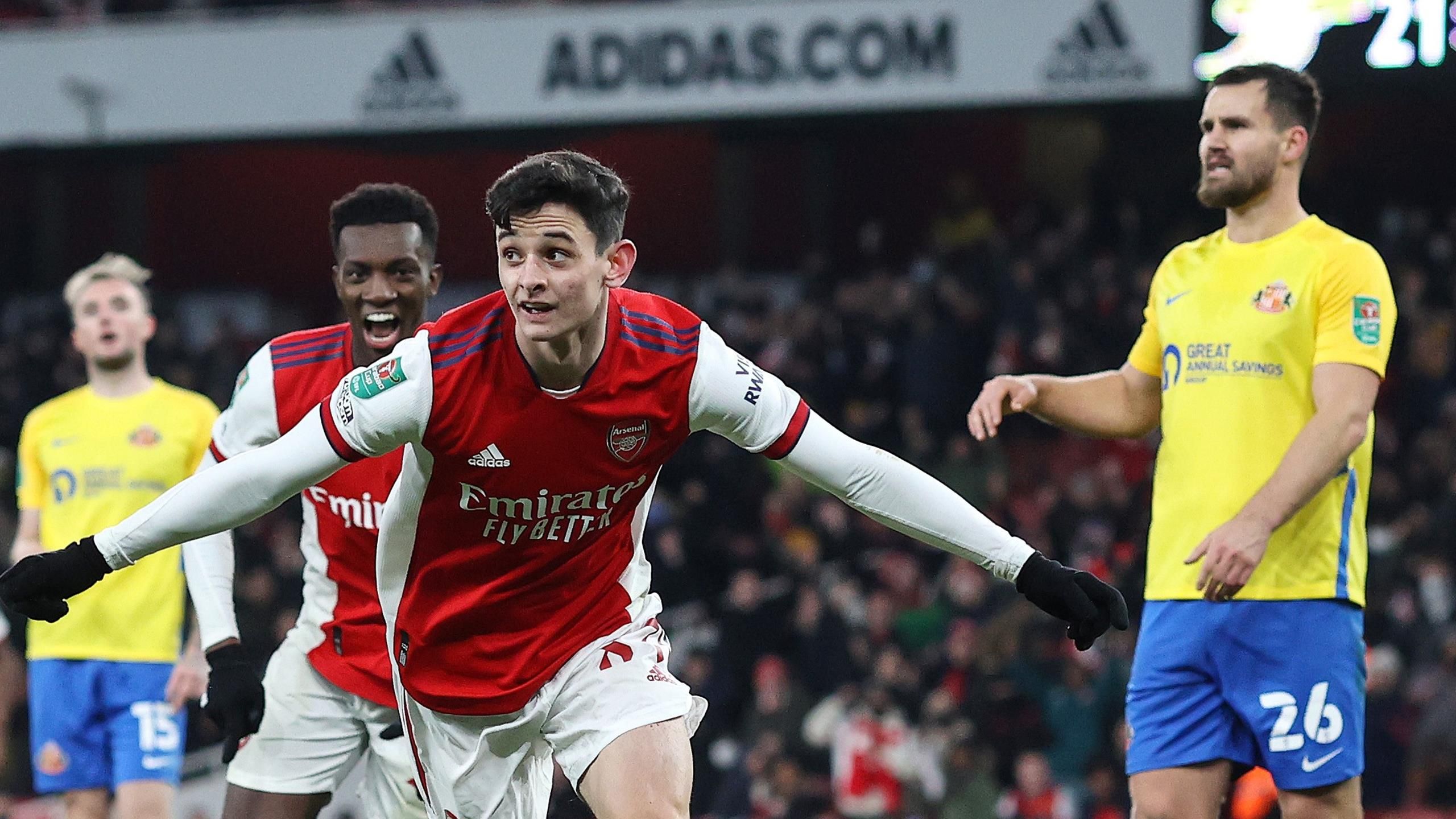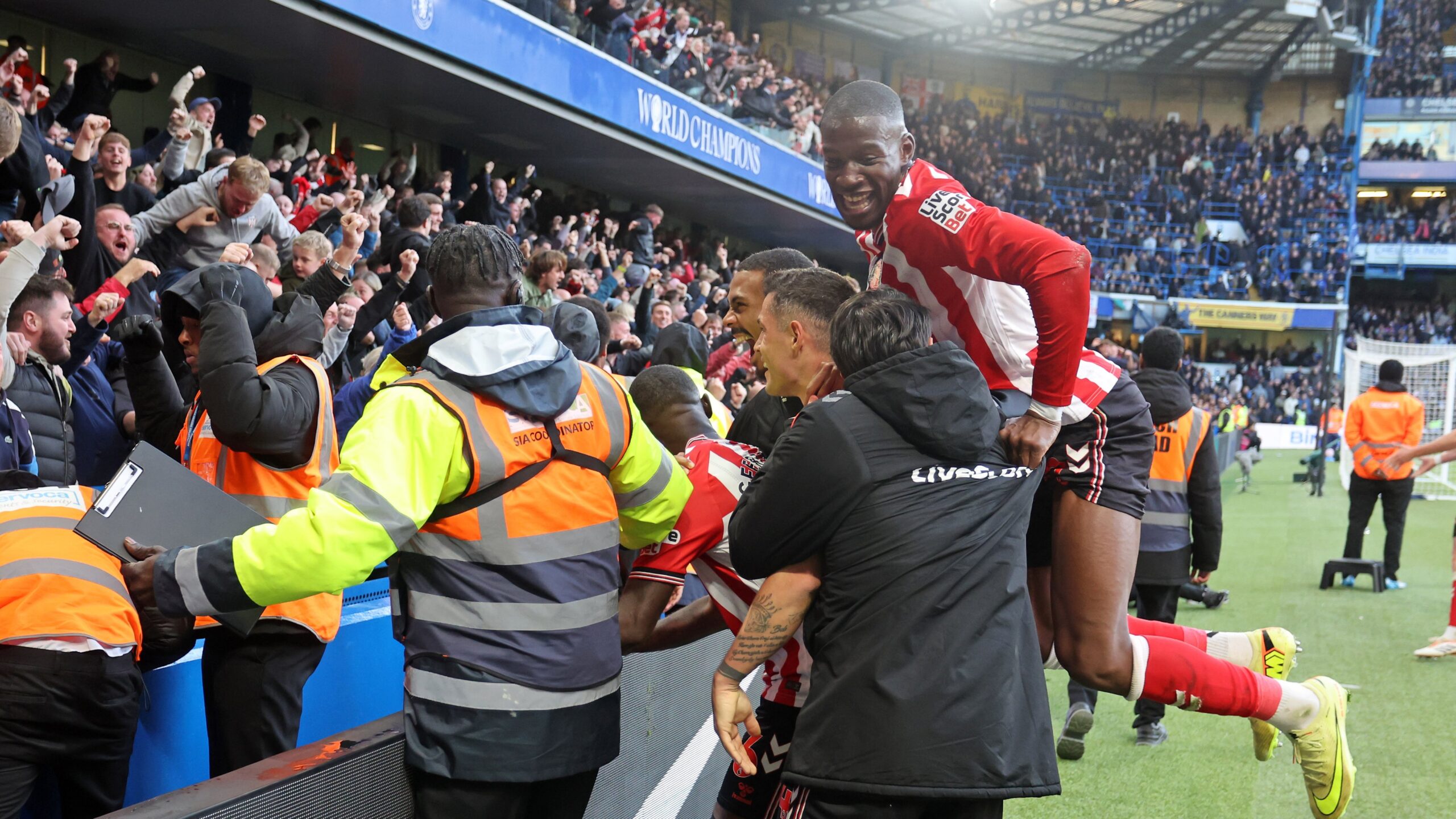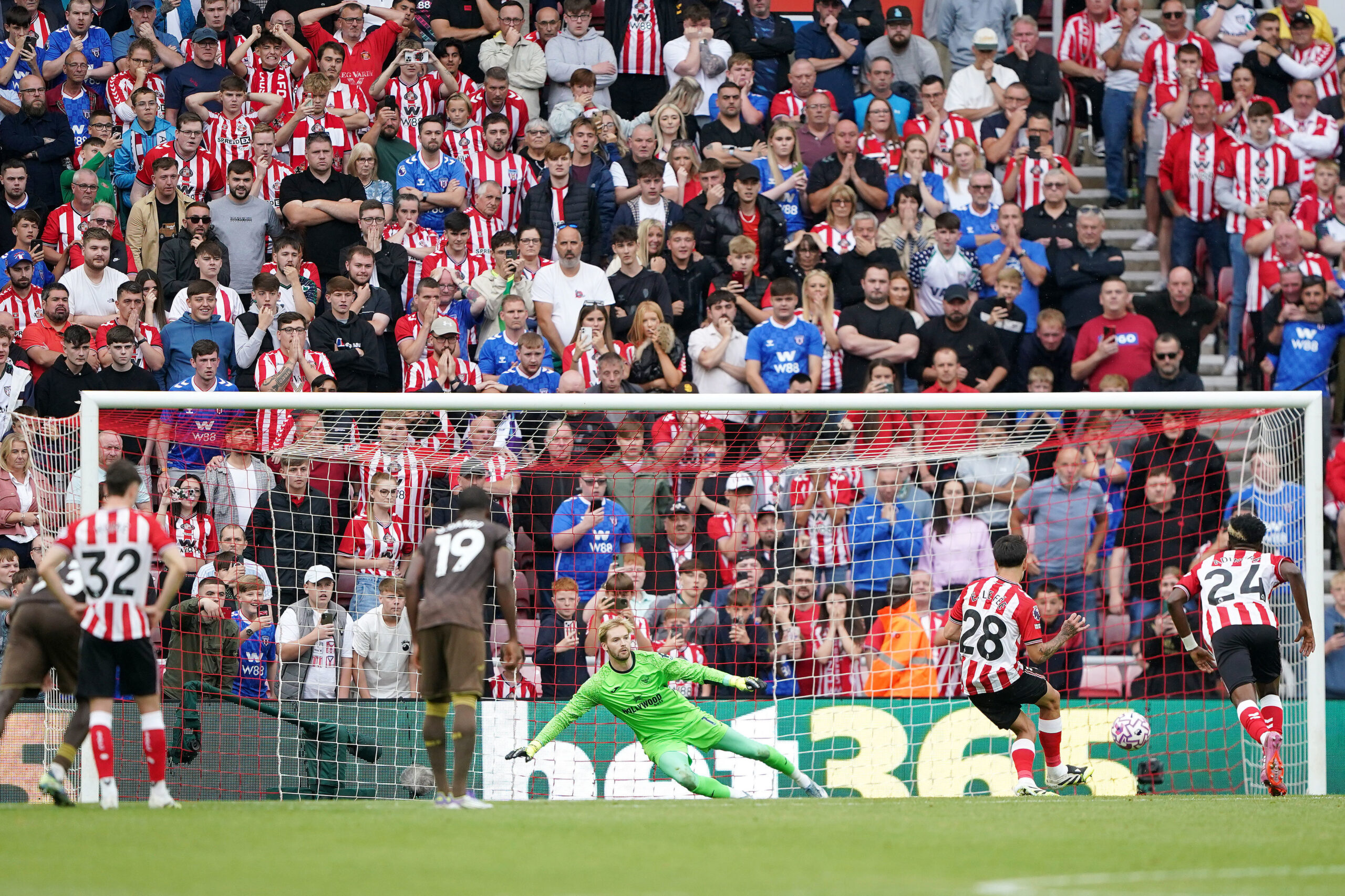The fabled tough run-in kicked off with a gritty win away at Norwich, and it gets much easier this week as we welcome high-flying Sheffield United to the Stadium of Light.
Largely because we’ve barely had to play each other for the past 20 years, I don’t have many memories of us having anything but a sad time against the Blades, so with that in mind, let’s look back at someone who very much enjoyed himself with both clubs. Oh, and one, that very much didn’t.
A quick note, however, is that Sheff Utd’s manager Paul Heckingbottom technically qualifies for this article, as he started his professional career at Sunderland back in 1995, but left in 1999 without making a single appearance, so that’s nice.
Joe Bolton
A top ten entry into the fabled Cult Hero list of Sunderland AFC, Birtley-born full-back Joe Bolton broke into the first team in 1972 – a game in which we tonked Watford 5-0, no less.
Bolton became Sunderland’s first choice left-back within months of his debut, and was barely out of the team from that point. However, when it came to the 1973 FA Cup run, Bob Stokoe leaned more on the experienced head of Ron Guthrie instead, so unfortunately for Bolton, although he was around at the time of the club’s greatest day, he was sadly not involved in the final itself.
However, simply put, Joe Bolton was hard as nails.
The years that followed the FA Cup win saw Bolton make the left-back position his own, and was a near ever-present member of the team to win promotion back to the First Division, claiming the Second Division title in 1976.
In his first year in the top flight, Bolton was named as Sunderland’s player of the year, mainly because in his wake he left piles upon piles of crumpled would-be attackers who dared to come up against him.
Bolton’s most notorious moment in red and white came in derby-but-not-a-derby against Middlesbrough, where he, in technical terms, stuck the nut on Boro’s Terry Cochrane, and was promptly sent off in the last minute.
After nine years in the Sunderland first team, Bolton made the move to Boro in 1981, presumably as compensation for the fear he’d instilled on Teesside in the years previous. Two years, 59 games and one goal was what Boro got for the hefty (for 1981) price tag of £200k, before Bolton moved on to Sheffield United in 1983.
The manager who brought Bolton to Sheffield was none other than his former teammate, and scorer of Sunderland’s winning Wembley goal in 1973, Ian Porterfield. Bolton again slotted straight into the Blades’ starting XI, and set about wreaking havoc in red and white stripes again.
At the end of his first season in Yorkshire, Bolton enjoyed promotion again, as the Blades finished third in Division Three, but he was released two years later, and forced to retire as a professional in May 1986, with injuries seriously hampering his playing time.
A brief stint at non-league Matlock Town followed in the late 80s before Bolton fully retired from the game, and supposedly took up a career as a lorry driver.
| Joined | Left | League Apps | League Goals | |
| Sunderland | 1972 | 1981 | 273 | 11 |
| Sheffield United | 1983 | 1986 | 109 | 3 |
Brett Angell
For a man who played for 15 different clubs over a 17-year career, it’s quite impressive that he was only ever any good for three of them, but here we are with Brett Angell.
Let’s get this one out the way – he was great for Cheltenham Town (24 goals in 37 games in 97/88) and for Southend United (47 goals in 115 games from 90-94) and he enjoyed success in each of his three separate spells at Stockport County (78 goals in 196 games).
But for the main part of his career, if you signed Brett Angell and you were not Cheltenham, Southend or Stockport, you might as well have just not bothered fielding an 11th player in the line up.
Angell’s nomadic career ran from 1986 through to 2003, and went exactly like this:
Portsmouth > Cheltenham > Derby > Stockport > Southend > Everton (loan) > Everton (…loan again) > Everton > Sunderland > Sheff Utd (loan) > West Brom (loan) > Stockport (loan) > Stockport > Notts County (loan) > Preston (loan) > Walsall > Rushden & Diamonds > Port Vale > QPR.
There are a couple of things that stick out to me here, namely that I do not understand Premier League Everton loaning in Brett Angell twice (then signing him permanently). The second being how, at the age of 34, having just spent time in the Third Division with Rushden & Diamonds and stint with Port Vale, he managed to finish his career with QPR, albeit, they were also in the third tier at the time.
Simply put, Angell was awful for Sunderland. Joining in the no man’s land between the likes of Marco Gabbiadini of the late 80s/early 90s, and Niall Quinn in the mid 90s, Angell was very much not the answer we were looking for to help our goalscoring prowess.
He scored precisely zero goals in the league for us, with his only strike coming against Preston in the League Cup. He cost £600k when Mick Buxton signed him, at a time where the club arguably didn’t really have that money to waste.
Upon his appointment as manager, Peter Reid was immediately unimpressed by him and sent him out on loan to Sheff Utd, who were managed by Howard Kendall, the man who had inexplicably already signed him twice for Everton earlier in his career. At least he netted twice for the Blade before his loan expired and he continued on his merry way to Stockport again, via West Brom (no goals).
Hilariously, according to a 2003 BBC article, Brett Angell was named as being amongst the worst players to have donned the shirts of both Everton and Sunderland, so you can tell he left a great impression.
Since retiring in 2003, Angell embarked on a coaching career which has staggeringly not seen him return to Stockport in any guise as of yet. Stints with Portsmouth and Bolton were followed up in 2014 by a five-year stay as the manager of Hawke’s Bay United in New Zealand, so that’s at least a nice place to end up.
| Joined | Left | League Apps | League Goals | |
| Sunderland | 1995 | 1996 | 10 | 0 |
| Sheffield United | 1996 | 1996 | 12 | 2 |

